-
 Bitcoin
Bitcoin $106,754.6083
1.33% -
 Ethereum
Ethereum $2,625.8249
3.80% -
 Tether USDt
Tether USDt $1.0001
-0.03% -
 XRP
XRP $2.1891
1.67% -
 BNB
BNB $654.5220
0.66% -
 Solana
Solana $156.9428
7.28% -
 USDC
USDC $0.9998
0.00% -
 Dogecoin
Dogecoin $0.1780
1.14% -
 TRON
TRON $0.2706
-0.16% -
 Cardano
Cardano $0.6470
2.77% -
 Hyperliquid
Hyperliquid $44.6467
10.24% -
 Sui
Sui $3.1128
3.86% -
 Bitcoin Cash
Bitcoin Cash $455.7646
3.00% -
 Chainlink
Chainlink $13.6858
4.08% -
 UNUS SED LEO
UNUS SED LEO $9.2682
0.21% -
 Avalanche
Avalanche $19.7433
3.79% -
 Stellar
Stellar $0.2616
1.64% -
 Toncoin
Toncoin $3.0222
2.19% -
 Shiba Inu
Shiba Inu $0.0...01220
1.49% -
 Hedera
Hedera $0.1580
2.75% -
 Litecoin
Litecoin $87.4964
2.29% -
 Polkadot
Polkadot $3.8958
3.05% -
 Ethena USDe
Ethena USDe $1.0000
-0.04% -
 Monero
Monero $317.2263
0.26% -
 Bitget Token
Bitget Token $4.5985
1.68% -
 Dai
Dai $0.9999
0.00% -
 Pepe
Pepe $0.0...01140
2.44% -
 Uniswap
Uniswap $7.6065
5.29% -
 Pi
Pi $0.6042
-2.00% -
 Aave
Aave $289.6343
6.02%
How does Binance view the KYC status of an account?
Binance's multi-layered KYC process verifies user identities, impacting trading limits and features. Verification involves document checks and potentially video calls, with account status displayed on the dashboard. Procedures adapt to evolving regulations and security concerns.
Mar 16, 2025 at 03:16 pm
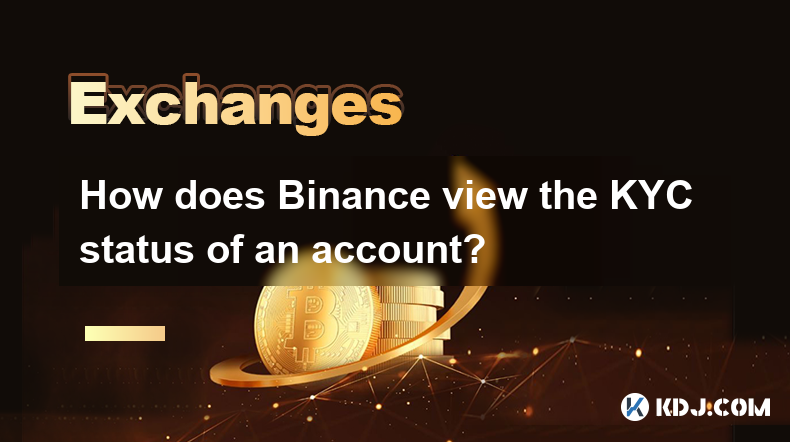
Key Points:
- Binance's KYC (Know Your Customer) process involves verifying user identity to comply with regulations and prevent illicit activities.
- Verification levels vary, impacting trading limits and features.
- Binance uses various methods to verify user information, including document checks and potentially live video calls.
- The status is reflected in the user's account dashboard and impacts available functionalities.
- Binance's KYC procedures are subject to change due to evolving regulations and security concerns.
How Does Binance View the KYC Status of an Account?
Binance, one of the world's largest cryptocurrency exchanges, employs a multi-layered Know Your Customer (KYC) process to verify the identities of its users. This is crucial for complying with international anti-money laundering (AML) and counter-terrorist financing (CTF) regulations. The level of KYC verification directly impacts the features and functionalities available to a user on the platform.
The initial step often involves providing basic personal information such as name, address, and date of birth. This basic verification allows for limited trading activity. However, to unlock higher trading limits and access a wider range of services, users need to complete a more thorough KYC process.
This more thorough process usually requires submitting identification documents such as a passport, driver's license, or national ID card. Binance's system then verifies the authenticity of these documents against its database and potentially external verification services. The process aims to ensure that the provided information accurately reflects the user's identity and prevents fraudulent accounts.
Binance's KYC process is designed to be robust and secure. The exchange utilizes advanced technologies to detect and prevent fraudulent activity. This includes sophisticated algorithms that analyze user behavior and transaction patterns to identify potentially suspicious activities. The system continuously monitors accounts for any red flags, ensuring a high level of security for both the platform and its users.
Verification Levels and Their Implications:
Binance's KYC system typically features several verification levels. The first level often requires minimal information, allowing basic account functionality. Subsequent levels require progressively more information and verification steps.
- Basic Verification: This usually involves providing your email address and phone number. It allows limited trading capabilities.
- Intermediate Verification: This step generally requires submitting a government-issued ID and proof of address. This unlocks higher trading limits and access to more features.
- Advanced Verification: This level may involve additional verification steps, such as a live video call or further document submission. It's often necessary for higher trading volumes or accessing specific services.
The specific requirements and implications of each verification level can change over time. Users should always check the latest guidelines on the Binance website for the most up-to-date information. Failing to complete the necessary KYC verification can restrict access to certain platform features and may even lead to account limitations or suspension.
How Binance Processes and Stores KYC Data:
Binance utilizes secure systems and encryption methods to protect user data. The exchange is committed to adhering to data privacy regulations and ensuring that user information is handled responsibly.
The information provided during the KYC process is used to verify the user's identity and to comply with regulatory requirements. Binance employs various security measures, including data encryption and secure storage facilities, to safeguard this information against unauthorized access or disclosure.
The process of verifying documents usually involves comparing the information provided by the user with information from official databases and other reliable sources. The system is designed to detect inconsistencies or discrepancies, flagging potentially suspicious accounts for further investigation. This layered approach aims to minimize the risk of identity theft and other fraudulent activities.
What Happens if My KYC Application is Rejected?
If your KYC application is rejected, Binance typically provides reasons for the rejection. This might be due to insufficient or unclear documentation, discrepancies in the provided information, or suspicion of fraudulent activity.
In such cases, you can usually re-apply, addressing the reasons for the initial rejection. Make sure to provide clear, high-quality images or scans of your documents, ensuring all information is accurate and legible. You might need to contact Binance support for assistance or clarification.
Common Questions:
Q: How long does the Binance KYC process take?
A: The processing time varies, ranging from a few minutes to several days depending on the verification level and the volume of applications Binance is currently processing.
Q: What documents are needed for Binance KYC?
A: This varies by jurisdiction and verification level, but typically includes government-issued ID (passport, driver's license, national ID card) and proof of address (utility bill, bank statement).
Q: Is my data safe with Binance?
A: Binance employs security measures to protect user data, including encryption and secure storage. However, no system is entirely immune to breaches, and users should always practice good security habits.
Q: What happens if I don't complete KYC?
A: You may face limitations on trading activities, including restricted access to certain features or a complete account freeze.
Q: Can I change my KYC information after submission?
A: Generally, you can contact Binance support to request changes to your KYC information, but the process may require additional verification. Contacting support is recommended.
Q: What if I have issues with my KYC verification?
A: Binance provides customer support channels, including email and live chat, to assist with KYC-related problems.
Disclaimer:info@kdj.com
The information provided is not trading advice. kdj.com does not assume any responsibility for any investments made based on the information provided in this article. Cryptocurrencies are highly volatile and it is highly recommended that you invest with caution after thorough research!
If you believe that the content used on this website infringes your copyright, please contact us immediately (info@kdj.com) and we will delete it promptly.
- Filecoin, Secure Storage, and Avalanche Enterprises: A New Era of Blockchain Collaboration
- 2025-06-20 14:45:13
- SEI Price Surge: Decoding the Reasons Behind the Rise
- 2025-06-20 14:25:12
- Cryptos for the Long Haul: Early Investors' Edge in 2025
- 2025-06-20 14:25:12
- Bitcoin Price in June 2025: Riding the $100K Wave?
- 2025-06-20 14:45:13
- Tether, Stablecoins, and Public Offerings: A New York Perspective
- 2025-06-20 15:05:13
- XRP Price Consolidates as Solana Meme Coin Snorter Token Gains Traction
- 2025-06-20 15:25:12
Related knowledge
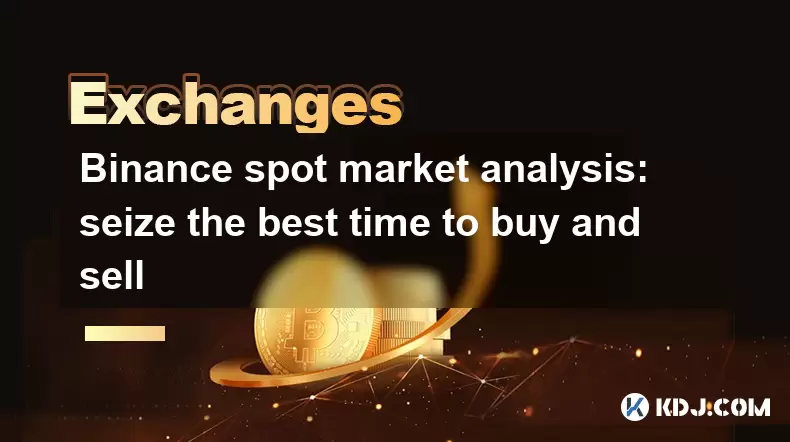
Binance spot market analysis: seize the best time to buy and sell
Jun 19,2025 at 04:56pm
Understanding the Binance Spot MarketThe Binance spot market is one of the most popular platforms for cryptocurrency trading globally. It allows users to trade digital assets at current market prices, making it essential for traders aiming to buy low and sell high. Unlike futures or margin trading, spot trading involves direct ownership of the asset aft...
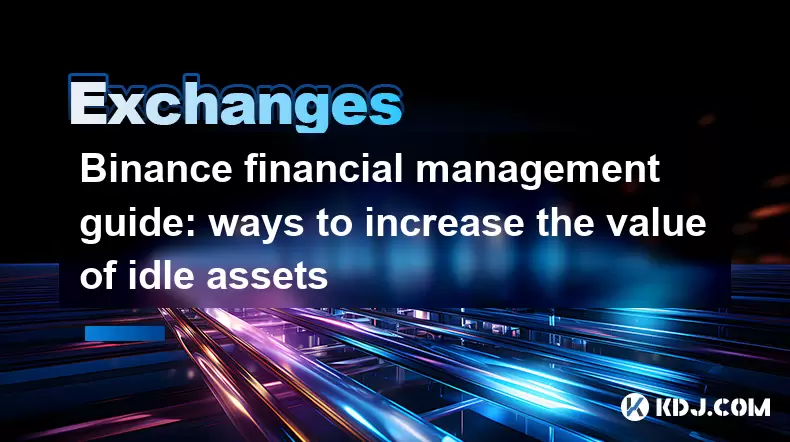
Binance financial management guide: ways to increase the value of idle assets
Jun 19,2025 at 11:22pm
Understanding Idle Assets in the Cryptocurrency SpaceIn the fast-paced world of cryptocurrency, idle assets refer to digital currencies that are not actively being used for trading, staking, or yield farming. Holding these funds in a wallet without utilizing them means missing out on potential growth opportunities. Binance, as one of the leading platfor...
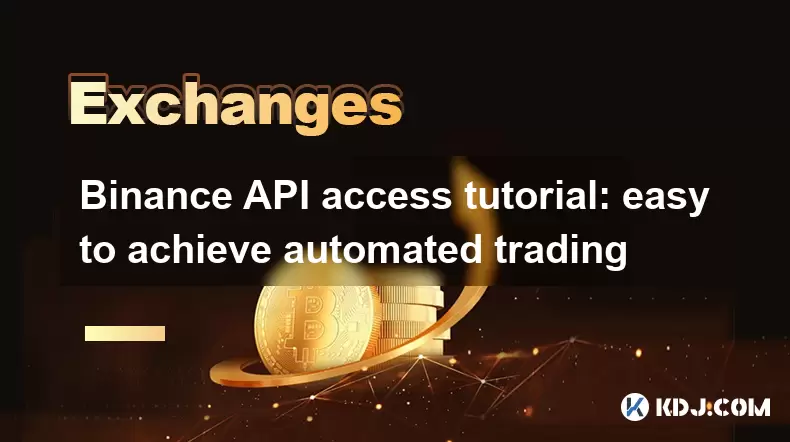
Binance API access tutorial: easy to achieve automated trading
Jun 20,2025 at 08:21am
Introduction to Binance APIThe Binance API provides a powerful interface that allows developers and traders to interact with the Binance exchange programmatically. This includes retrieving market data, placing trades, checking account balances, and much more. The API is especially useful for those interested in automated trading strategies, as it enable...
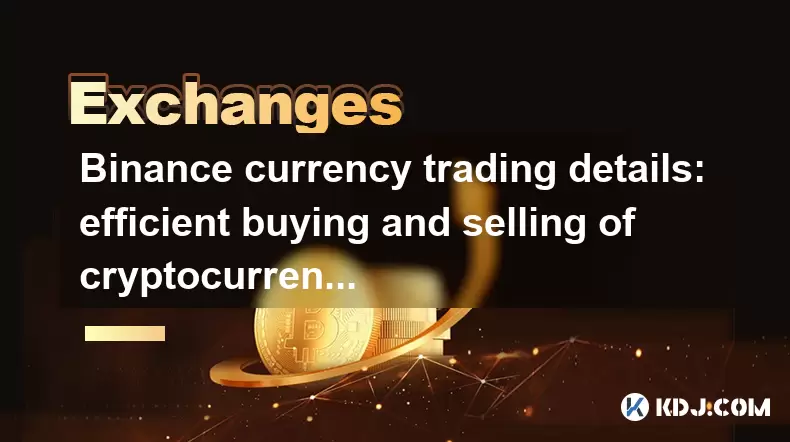
Binance currency trading details: efficient buying and selling of cryptocurrencies
Jun 19,2025 at 10:28pm
Understanding Binance as a Cryptocurrency Trading PlatformBinance is one of the largest and most popular cryptocurrency exchanges globally, offering users a robust platform for trading various digital assets. The platform supports a wide range of cryptocurrencies, including Bitcoin (BTC), Ethereum (ETH), Binance Coin (BNB), and many altcoins. Efficient ...
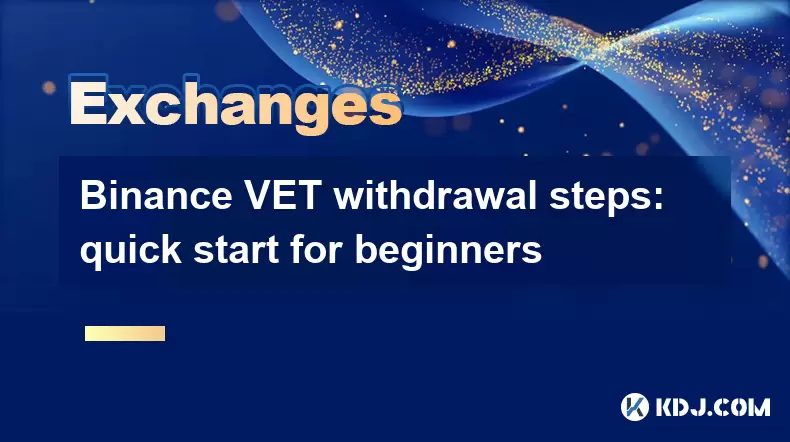
Binance VET withdrawal steps: quick start for beginners
Jun 19,2025 at 04:49pm
Understanding VET and BinanceVET (VeChain Token) is the native cryptocurrency of the VeChain blockchain, which focuses on supply chain management and enterprise solutions. Binance, one of the world’s largest cryptocurrency exchanges, allows users to trade and withdraw various cryptocurrencies, including VET. For beginners, understanding how to securely ...
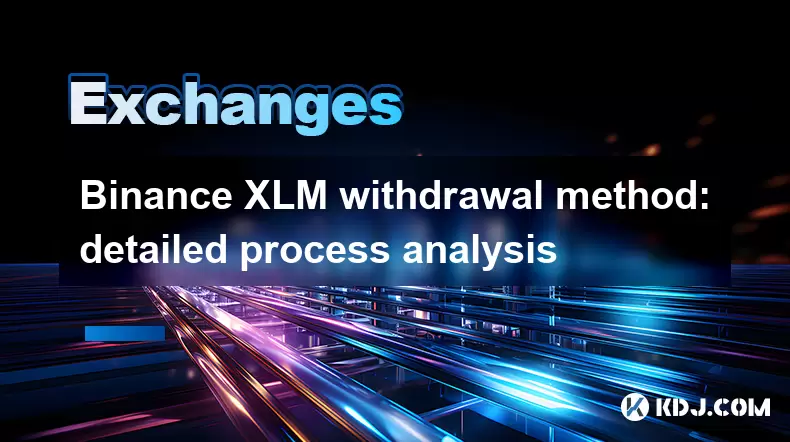
Binance XLM withdrawal method: detailed process analysis
Jun 19,2025 at 07:29pm
Overview of Binance and XLM WithdrawalBinance is one of the largest cryptocurrency exchanges globally, offering users a platform to trade, store, and withdraw various digital assets. XLM, also known as Stellar Lumens, is a popular cryptocurrency used for cross-border transactions and decentralized financial services. When it comes to withdrawing XLM fro...

Binance spot market analysis: seize the best time to buy and sell
Jun 19,2025 at 04:56pm
Understanding the Binance Spot MarketThe Binance spot market is one of the most popular platforms for cryptocurrency trading globally. It allows users to trade digital assets at current market prices, making it essential for traders aiming to buy low and sell high. Unlike futures or margin trading, spot trading involves direct ownership of the asset aft...

Binance financial management guide: ways to increase the value of idle assets
Jun 19,2025 at 11:22pm
Understanding Idle Assets in the Cryptocurrency SpaceIn the fast-paced world of cryptocurrency, idle assets refer to digital currencies that are not actively being used for trading, staking, or yield farming. Holding these funds in a wallet without utilizing them means missing out on potential growth opportunities. Binance, as one of the leading platfor...

Binance API access tutorial: easy to achieve automated trading
Jun 20,2025 at 08:21am
Introduction to Binance APIThe Binance API provides a powerful interface that allows developers and traders to interact with the Binance exchange programmatically. This includes retrieving market data, placing trades, checking account balances, and much more. The API is especially useful for those interested in automated trading strategies, as it enable...

Binance currency trading details: efficient buying and selling of cryptocurrencies
Jun 19,2025 at 10:28pm
Understanding Binance as a Cryptocurrency Trading PlatformBinance is one of the largest and most popular cryptocurrency exchanges globally, offering users a robust platform for trading various digital assets. The platform supports a wide range of cryptocurrencies, including Bitcoin (BTC), Ethereum (ETH), Binance Coin (BNB), and many altcoins. Efficient ...

Binance VET withdrawal steps: quick start for beginners
Jun 19,2025 at 04:49pm
Understanding VET and BinanceVET (VeChain Token) is the native cryptocurrency of the VeChain blockchain, which focuses on supply chain management and enterprise solutions. Binance, one of the world’s largest cryptocurrency exchanges, allows users to trade and withdraw various cryptocurrencies, including VET. For beginners, understanding how to securely ...

Binance XLM withdrawal method: detailed process analysis
Jun 19,2025 at 07:29pm
Overview of Binance and XLM WithdrawalBinance is one of the largest cryptocurrency exchanges globally, offering users a platform to trade, store, and withdraw various digital assets. XLM, also known as Stellar Lumens, is a popular cryptocurrency used for cross-border transactions and decentralized financial services. When it comes to withdrawing XLM fro...
See all articles

























































































